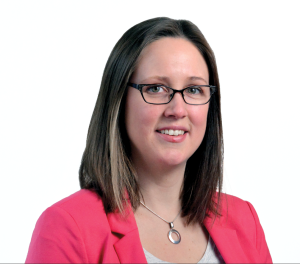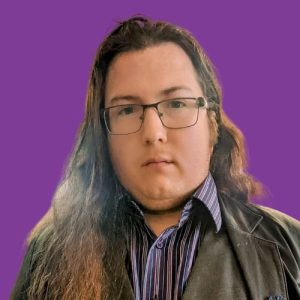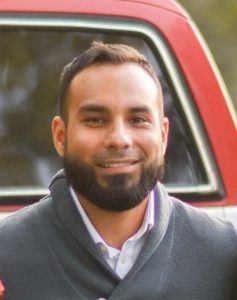Amy Wright, a nurse practitioner and researcher at the University of Toronto’s Lawrence Bloomberg Faculty of Nursing, is collaborating with Indigenous fathers and community members, to build a set of parenting resources aimed specifically at supporting men and Two-Spirit people along their journey into parenthood.
The Fathers of the Next Generation study, which is funded by the Canadian Institutes of Health Research, is built on a previous scoping study conducted by Wright, that revealed gaps in available resources for fathers, and a significant desire from them and their partners to be able to access resources related specifically to their experiences and transition into parenthood.
Though the study is still in its early stages of development, Wright has said that it has already been immensely informative to hear from fathers during their ongoing consultations and the interview process.

“This is much bigger than the western conceptualization of what a parenting program should look like, it is more holistic and culturally and emotionally centered, instead of task based,” says Wright. “Yes, they want to know about diapering, and supporting their partner in breastfeeding, but they also want to know more about their traditional role as a father, how to spiritually guide their children, some are on a healing journey, and are interested in understanding how to be a father in relation to how they have been fathered.”
The study’s Steering Committee which includes members from the Six Nations of the Grand River, has been essential in not only recruiting fathers to take part in the study, but also in providing important insights and guidance around developing the study using Indigenous ways of knowing.
“There is a deep and recurring theme among the fathers we have interviewed that points to their desire to communicate and ground their parenting within their culture and spirituality alongside other important aspects of parenting like nutrition and health and emotional needs,” says Wright.

Steering Committee member Wihsé Spring who identifies as a Two-Spirit father, wanted to contribute to the study because of his own experience entering fatherhood, and also because he says, of the way he has seen fathers are often treated as if they are going to drop the ball and that perspective starts to stick.
“Sometimes it can seem like dad’s are just a decoration, and that’s not true. We want to have the resources to get rid of that label and have the confidence moving forward to not only be good fathers but also explore the connection to our culture and community,” says Spring.
The question of what role fathers played before colonization and how to be an Indigenous father are key themes that have come up in the early stages of the study. When asked about what specific resources would be beneficial, most of the fathers participating in the study are keen to see in-class workshops around parenting facilitated by fathers, and to be role models in their own healing if they grew up without a father.
“An important element that came out of our previous scoping study, was a desire from the men to build a network of peers where fathers can learn from and support one another,” says Wright. “Having meals together or participating in traditional or on-the-land activities would also help break down any barriers of engagement and encourage fathers to seek out health promotion programs and prenatal/postnatal resources.”

Parenting positively and stopping a perpetual cycle of generational trauma, in addition to being proud to step up as a father, is what motivated David Johnson, a registered nurse and member of the Six Nations of the Grand River community, to participate in the study as a member of the Steering Committee and to play a key role in encouraging participation from other new fathers in his community.
Johnson describes himself as a change-maker, and as a proud father to two young girls he acknowledges he has been fortunate to have had his parents in his life to learn from and to lean on for support. But he says that so many of his peers are facing child custody issues, or negative assumptions about themselves as fathers, which is why he has encouraged them to have their voice heard in this study in the hopes of revitalizing the role of fathers.
“Lots of men in my generation are stepping up as fathers, and having a variety of resources including workshops taught by other fathers, will just hit closer to home,” says Johnson. “Showing men how to be more in touch with expressing themselves, working through their own healing journey, and helping them to not deviate from the main goal of supporting their kid, could make a world of difference.”
More information about The Fathers of the Next Generation Study is available through their website and social media channels where the conversation about Indigenous fatherhood is meant to continue. Wright is hopeful that the platform will also be an additional opportunity to educate those interested about the traditional role of Indigenous fathers.
